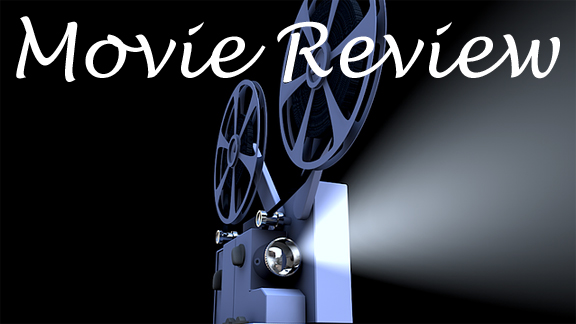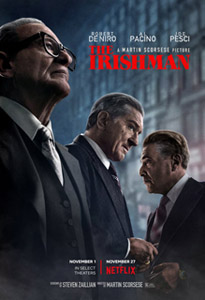“The Irishman” (2019, Netflix) pairs nicely as the back half of a double feature with 1992’s “Hoffa.” That film, which was likewise Oscar-nominated, focuses on Jimmy Hoffa’s creation and popularization of a workers’ union, whereas director Martin Scorsese’s “The Irishman” digs into the darker corners of the mobsters who circled around Hoffa. Both films are from the point of view of one of Hoffa’s trusted seconds: Danny DeVito’s Bobby Ciaro in “Hoffa” and Robert De Niro’s Frank Sheeran, the titular Irishman.
‘Hoffa’ vs. ‘The Irishman’
I’m in the minority in that I like “Hoffa” better. It’s a clearer portrayal of the complex nature of creating a union and keeping it powerful, while also maintaining one’s own power. But if you have 3.5 hours to spare, “The Irishman” is a deep if meandering dive into various Teamster and mobster activities in the middle chunk of the last century. Its story and character threads are subtle to nonexistent at first, but – especially after a shocking final-act event — a theme coalesces.
Screenwriter Steven Zaillian, working from Charles Brandt’s controversial 2004 book that presents a theory of Hoffa’s disappearance, ultimately has his mind on life and death. As we meet various mobsters, the screen flashes information on how and when they died; it’s almost always in violent fashion, a consequence of the criminal lifestyle. Zaillian plants the question: “Is it all worth it?”

“The Irishman” (2019)
Director: Martin Scorsese
Writers: Steven Zaillian, Charles Brandt
Stars: Robert De Niro, Al Pacino, Joe Pesci
I found dark humor in a lot of the hits Frank executes, and I’m 90 percent sure I was supposed to. If nothing else, though, “The Irishman” teaches us the ins and outs of Frank’s job. In a voiceover, he notes that he likes to go to the bathroom before a hit in a restaurant, mainly to see if there’s an enemy in there, and incidentally to avail himself of the facilities.
“The Irishman” meditates on how people fool themselves into believing in a fair and just world. A war veteran, Frank marvels that prisoners ordered to dig their own graves would work hard at the job, thinking on some level that their executioner will let them go if they worked hard enough. It’s a nice – if pessimistic – metaphor for the working man’s life, which Hoffa (if you prefer the generous portrayal of the man) heroically succeeded in improving through the creation of the Teamsters and collective bargaining.
De Niro gives a classic turn
De Niro gives both a classic De Niro turn – in a good way – and a classic mob-movie turn, as we can tell he doesn’t enjoy his job so much as he’s simply good at it. He’s so driven by the appeal of a steady job that he cares less about what the job is; that’s the tragedy of taking to heart the mostly valid lesson of the grave-digging soldiers.

Joe Pesci, coming out of retirement, plays Russell Bufalino, Frank’s champion within the Teamsters and a man who gets things done – proof of the accuracy of George Carlin’s take on Pesci.
Al Pacino nicely channels Hoffa, who enters the film partway and then appropriately dominates the scenes he’s in. It’s not as stylized a turn as Jack Nicholson’s, but it’s remarkable how both actors get at the look and mannerisms of the union boss even though they wouldn’t be mistaken for one another.
Beyond those three lead turns, “The Irishman” includes memorable smaller characters, notably Lucy Gallina and Anna Paquin as Frank’s daughter Peggy. Through Peggy’s uncanny mistrust of Russell and trust of Hoffa, and various probing looks at Frank, we see how she knows more about her dad’s grim career than he realizes.
A serious time investment
“The Irishman” – filled with impeccable period production design and believable portrayals of the leads aging through the years – is ultimately one of those films that I respect but don’t desire to watch again.
It’s a serious time investment. Maybe it should’ve been presented as a four-episode miniseries, although since it’s a Netflix film, we can watch it in as many sittings as we want. Even after just completing my viewing, I couldn’t recount the details of Frank’s jobs or the reasons for them. Perhaps that’s not a flaw worth dwelling on, as it’s the nature of organized crime to be shadowy and unclear.
And the details of Frank’s job might be beside the point; it’s the fact that he’s a hitman that matters. “The Irishman” ironically focuses on work that’s (at least tangentially) related to improving the Working Man’s condition. But Frank, who wins this grand game by being the last survivor, may have completely missed the boat on what’s important in life.

